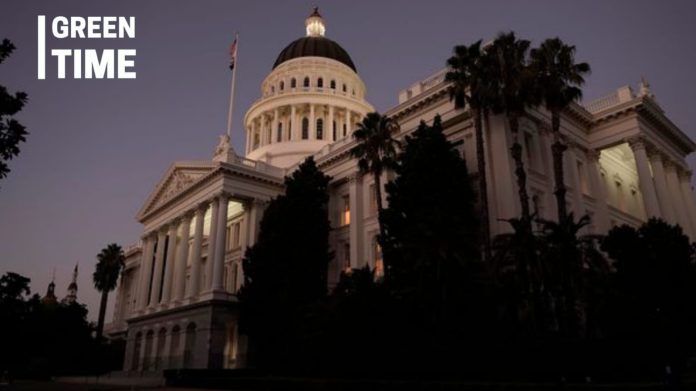As California emerges as a pivotal battleground for artificial intelligence regulation, a heated debate is unfolding between AI companies and state lawmakers. The conflict centers around a bill advancing through the California legislature, which aims to impose stringent safety regulations on AI technologies. Industry leaders argue that these proposed rules are too vague and could stifle innovation in a field that is rapidly transforming industries worldwide.
The bill, which has garnered significant attention, is designed to establish safety protocols for AI systems, ensuring they operate without causing harm to individuals or society at large. Proponents of the bill argue that as AI becomes increasingly integrated into everyday life, there is a pressing need for regulations that prevent misuse and protect public safety.
However, the AI industry sees the situation differently. Tech giants and AI startups alike are uniting in opposition to the bill, asserting that the proposed regulations are overly broad and could create insurmountable challenges for developers. They argue that the language used in the bill is too vague, leaving too much room for interpretation, which could lead to excessive legal scrutiny and hinder technological progress.
“This bill, in its current form, risks halting the innovation that has made California a global leader in AI development,” said a representative from a leading AI company. “The requirements are unclear and could lead to unnecessary hurdles for companies trying to bring new, beneficial technologies to market.”
Despite the pushback from the industry, lawmakers behind the bill maintain that the regulations are necessary to ensure that AI technologies are developed and deployed responsibly. They argue that without proper oversight, the risks associated with AI—such as biased algorithms, privacy violations, and unintended consequences—could outweigh the benefits.
The debate highlights a broader issue facing the AI industry: how to balance innovation with public safety. While there is a growing consensus that some form of regulation is necessary, the challenge lies in crafting rules that are both effective and flexible enough to accommodate the fast-paced evolution of AI technologies.
As the bill continues to move through the legislative process, the outcome of this battle could set a precedent for AI regulation not only in California but across the United States. For now, the industry remains on high alert, closely monitoring the situation as it seeks to protect its ability to innovate while navigating the complex landscape of regulation.
As California emerges as a pivotal battleground for artificial intelligence regulation, a heated debate is unfolding between AI companies and state lawmakers. The conflict centers around a bill advancing through the California legislature, which aims to impose stringent safety regulations on AI technologies. Industry leaders argue that these proposed rules are too vague and could stifle innovation in a field that is rapidly transforming industries worldwide.
The bill, which has garnered significant attention, is designed to establish safety protocols for AI systems, ensuring they operate without causing harm to individuals or society at large. Proponents of the bill argue that as AI becomes increasingly integrated into everyday life, there is a pressing need for regulations that prevent misuse and protect public safety.
However, the AI industry sees the situation differently. Tech giants and AI startups alike are uniting in opposition to the bill, asserting that the proposed regulations are overly broad and could create insurmountable challenges for developers. They argue that the language used in the bill is too vague, leaving too much room for interpretation, which could lead to excessive legal scrutiny and hinder technological progress.
“This bill, in its current form, risks halting the innovation that has made California a global leader in AI development,” said a representative from a leading AI company. “The requirements are unclear and could lead to unnecessary hurdles for companies trying to bring new, beneficial technologies to market.”
Despite the pushback from the industry, lawmakers behind the bill maintain that the regulations are necessary to ensure that AI technologies are developed and deployed responsibly. They argue that without proper oversight, the risks associated with AI—such as biased algorithms, privacy violations, and unintended consequences—could outweigh the benefits.
The debate highlights a broader issue facing the AI industry: how to balance innovation with public safety. While there is a growing consensus that some form of regulation is necessary, the challenge lies in crafting rules that are both effective and flexible enough to accommodate the fast-paced evolution of AI technologies.
As the bill continues to move through the legislative process, the outcome of this battle could set a precedent for AI regulation not only in California but across the United States. For now, the industry remains on high alert, closely monitoring the situation as it seeks to protect its ability to innovate while navigating the complex landscape of regulation.

